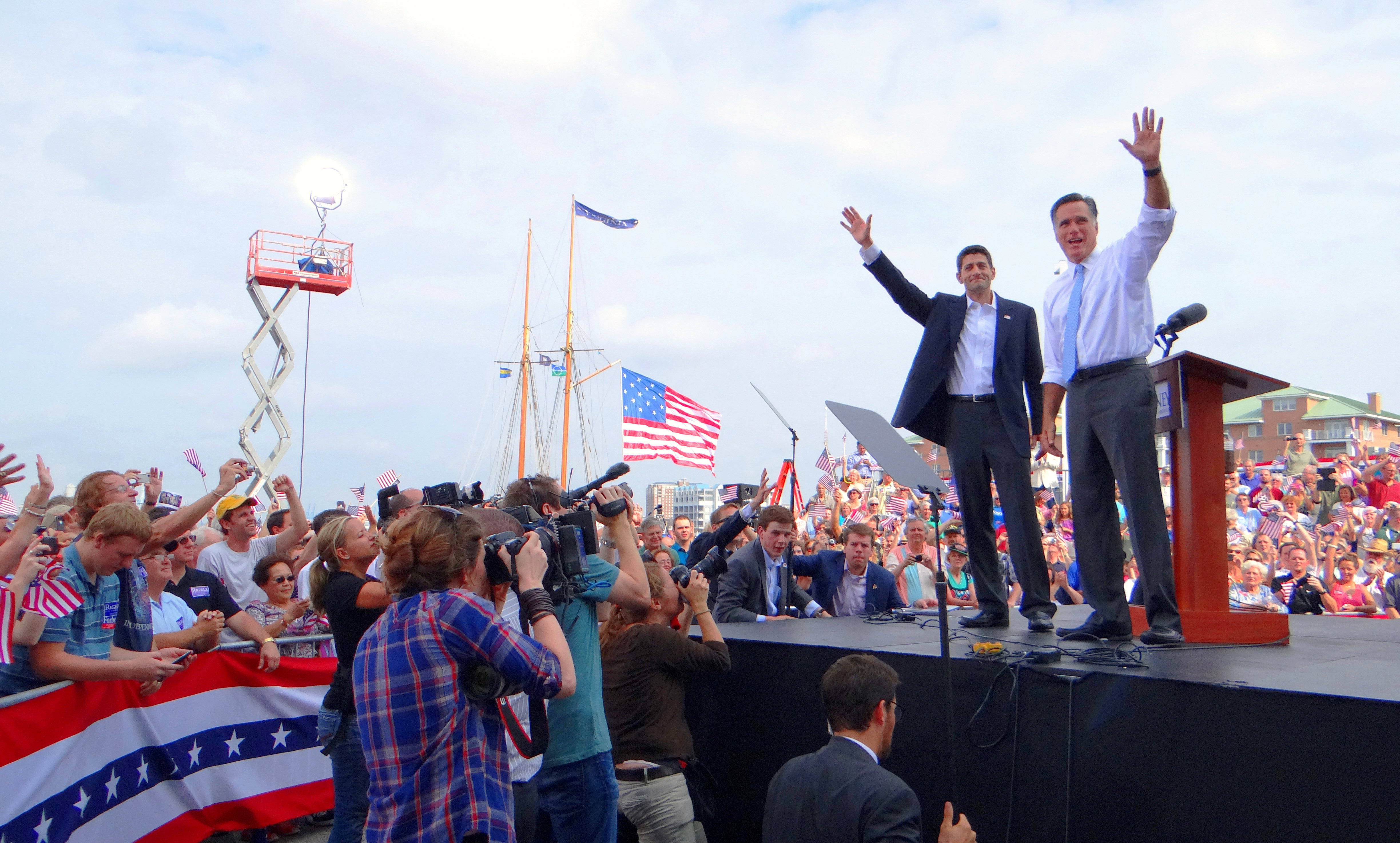A new leaked video records Mitt Romney speaking at an unnamed, undated private fundraiser. Coincidentally, new data released hours beforehand suggested that this week could make or break the Romney campaign. Depending on how the week plays out, then, this scandal could exceed its own size.
I’m not going to unload on Romney (I do that here); the paid polemics of weblandia are doing a far better job, starting with Ezra Klein’s excellent breakdown here, plus Andrew Sullivan’s collected reactions here and here.
My two cents: the real story here revolves around two deeper takeaways from the video that, if Romney can’t rebound hard Tuesday morning and win this media cycle, could be the moment people say Mitt lost it.
The first is Romney’s continued difficulty aligning his narrative with actual policy. Much of this stems from the ever-present need to shore up turnout and appeal to the base—a problem the campaign often thinks they solve by avoiding policy details altogether (which, incidentally, Romney acknowledges later on in the video, possibly a small scandal in itself). So the problem here isn’t really that Romney’s remarks are insensitive—it’s that they run head-on into his entire campaign’s economic narrative at the expense of some mythic Ayn-Randian counter-reality.
Why? If 83% (payroll plus elederly) aren’t part of the government-dependent liberals that Romney caricatures, that leaves 17% who pay no income taxes because they are unemployed. I haven’t seen the inside of a math building in three years, but my roommate tells me that 17% of 47% is 7.99%. Assuming we forgive that Romney’s claim is 83% misleading, then this is the revised percentage of Obama’s hammock-dwelling, government-milking welfare army who can’t be convinced to care for their lives.
It’s not a coincidence that 7.99% is roughly the unemployment rate. But wait— aren’t the unemployed the constiuency Romney is supposedly trying to win? Takeaway number one from the video, then, is red-handed evidence that Romney’s message about restoring the middle class isn’t really about helping the people that need to get into the middle class—it’s about conceptualizing economic policy that only sounds to “independents” like how a help-the-unemployed message might sound, sprinkled with some “emotion” and never too much “intellectual” policy details (all Romney quotes from the video). For liberals, that entire sentence is bleeding obvious—but I’m saying that the video indicates Romney is invested in this from a strategy standpoint. Or more relevantly, when this whole shebang is over this video is going to be a crucial piece picked out of the rubble; “Why didn’t he stand next to more urban and working poor?” we’ll ask, and the answer looks like: “He thought he could write them off.” His economic message reflects a strategic choice to put the GOP narrative ahead of good politics.
But the second takeaway is a bigger deal for the Romney campaign, one Ezra Klein coincidentally covered only hours before the scandal hit. New data suggests that the two weeks immediately preceding and following the Convention are the most crucial for determining the election’s outcome; that is, the larger the lead by mid-September, the likelier the victory for that candidate. For complicated reasons, debates may or may not (but mostly don’t) play much of a role.
Expectedly then, before the scandal broke, a running sub-story over the weekend was whether this current week could make or break the Romney campaign. If Klein’s evidence is correct, then the question of whether Obama can maintain his bounce this week (as opposed to the real plausibility of a drop) could—according to this data set and barring some major event—decide the election by Friday.
Those were/are the stakes; enter Romney video. That the scandal breaks during what statistically amounts to the most central week in the campaign—immediately after the conventions, and when independents begin tuning in—could inflate Obama’s bounce and take him over the statistical threshold.
The final takeaway from the video: if Romney doesn’t significantly close the polling gap this week, the very possibility of a Romney victory goes against data from every election since 1948. It’s the timing—not the words—of the video that make it a possible KO.
